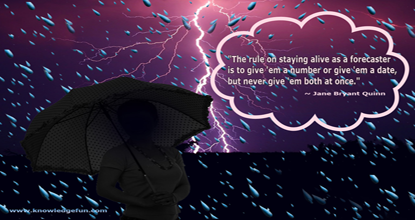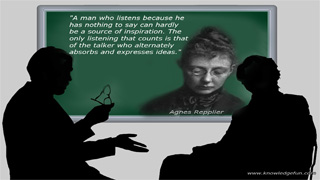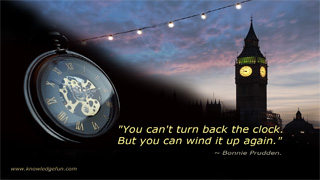Did You Know?
Read and find new and interesting facts and perspectives that you might not have thought of.
Until 1886, when the Statue of Liberty was erected, the Falls at Niagara were the symbol of America and the New World. Visitors from all over the world targeted Niagara as a must-see during a visit to North America. Find out more
interesting Niagara facts...
On January 7th 1610, Italian astronomer Galileo made the earthshaking discoveries of Jupiter's four moons and that the telescope reveals many more stars than are visible to the naked eye.
British computer scientist Sir Tim Berners-Lee invented the World Wide Web in 1989. By October of 1990, he had written the three fundamental technologies that remain the foundation of today’s web: HTML (HyperText Markup Language), URI (Uniform Resource Identifier) and HTTP (Hypertext Transfer Protocol). He also also wrote the first web page editor/browser (“WorldWideWeb.app”) and the first web server (“httpd“). By the end of 1990, the first web page was served on the open internet.
On May 8th 1942 in the Battle of the Coral Sea, the USS Lexington became the first U.S. aircraft carrier to be sunk during World War II.
"I am." is the shortest complete sentence in the English language.
The six current official and working languages of the United Nations are: English, French, Arabic, Chinese, Russian and Spanish.
Each king in a deck of playing cards represents a great king from history. Spades - King David, Clubs - Alexander the Great, Hearts - Charlemagne, and Diamonds - Julius Caesar.
Bites, kicks, and stings from farm animals, bees, wasps, hornets, and dogs continue to represent the most danger to humans in US, according to a study in Wilderness & Environmental Medicine. They found that from 2008-2015, there were 1,610 animal-related fatalities in the US, with the majority of deaths the result of encounters with nonvenomous animals (57 percent).
The English phrase "rule of thumb" refers to a principle with broad application that is not intended to be strictly accurate or reliable for every situation. This phrase can be traced back to the seventeenth century, and has been associated with various trades where quantities were measured by comparison to the width or length of a thumb. A modern folk etymology holds that the phrase "rule of thumb" is derived from an old English law which stated that you couldn't beat your wife with anything wider than your thumb. This belief may have originated in a rumored statement by the eighteenth-century judge Sir Francis Buller that a man may beat his wife with a stick no wider than his thumb. There is no record that he made such a statement.
"Pneumonoultramicroscopicsilicovolcanoconiosis" (45 letters), is the longest word in the English language according to the Oxford Dictionaries. It is invented long word and means a lung disease caused by inhaling very fine ash and sand dust. The longest non-technical word in some other major dictionaries is "floccinaucinihilipilification" (29 letters), defined as the act of estimating something as worthless. Its usage has been recorded as far back as 1741.
The Vatican Bank is the world's only bank that allows ATM users to perform transactions in Latin.
Vatican City is the smallest country in the world based on landmass, measuring just 0.2 square miles and population around 800 citizens, but no-one is born in the country. Vatican has its own currency with the Pope’s head on the coins and it also has its own post office and stamps.
The Pitcairn Islands (officially Pitcairn, Henderson, Ducie and Oeno Islands) have the title of smallest country in the world by population. This group of four volcanic islands in the southern Pacific Ocean that form the sole British Overseas Territory in the South Pacific Ocean are scattered across several hundred miles of ocean and have a combined land area of about 18 square miles (47 km2). Henderson Island accounts for 86% of the land area, but only Pitcairn Island is inhabited. Today there are approximately 50 permanent inhabitants, originating from four main families.







